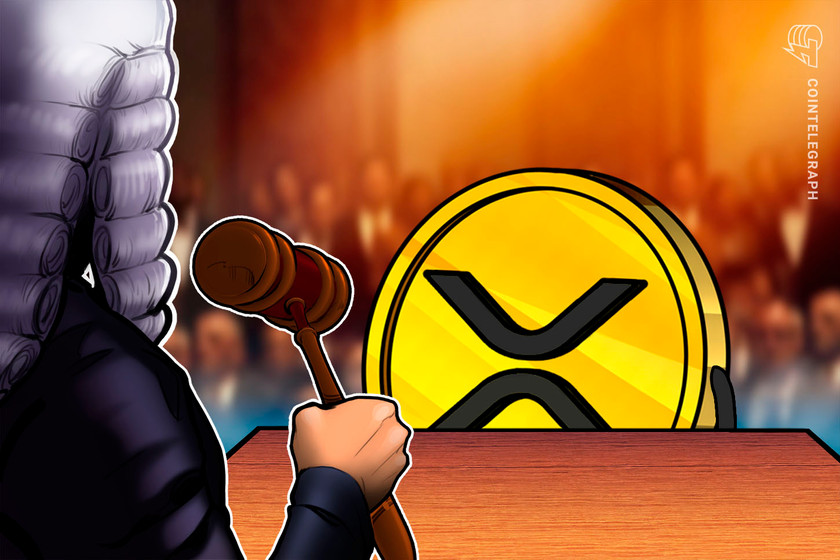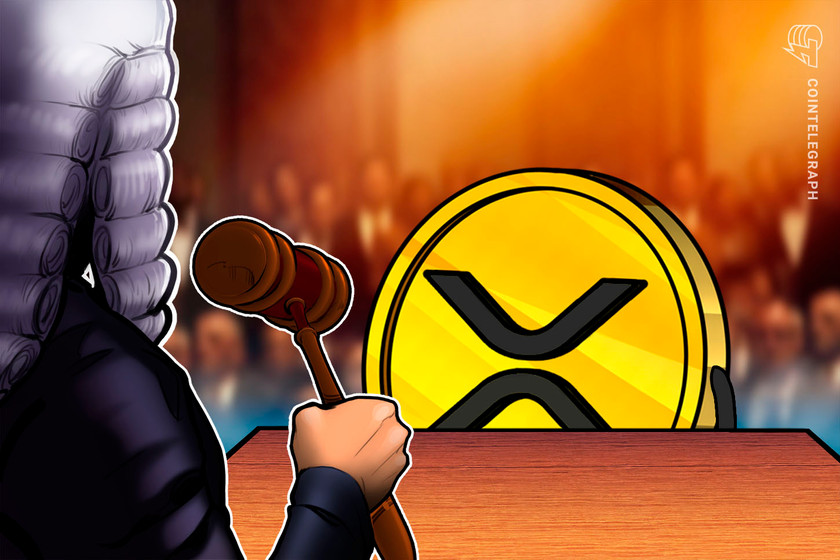The crypto industry has ‘already started’ moving outside US, says Ripple CEO


Ripple’s CEO Brad Garlinghouse said the SEC’s lawsuit against Ripple is the regulator playing “offense” and “attacking” the industry as a whole.
The United States Securities and Exchange Commission’s (SEC) regulation through “enforcement” is not a “healthy way” to regulate an industry, and may result in the U.S. being a less attractive location for crypto firms, suggests Ripple’s CEO.
In a March 3 Bloomberg interview, Brad Garlinghouse, CEO of blockchain-based digital payment network Ripple, suggested that the SEC’s regulation approach puts the U.S. at “severe risk” of missing out on being an attractive hub for the next evolution of blockchain and crypto innovation.
Garlinghouse noted that the SEC’s case against Ripple is the SEC simply playing “offense” and “attacking” the industry as a whole, adding that if the SEC is “able to prevail,” there will be “a lot of other cases.”
He suggested that the crypto industry has “already started moving outside” of the U.S., given its crypto regulation process is “behind” other countries like “Australia, the United Kingdom, Japan, Singapore and Switzerland.”
He commended these countries for taking “the time and thoughtfulness” to create “clear rules of the road,” adding that the approach taken by the U.S. is not a “healthy way to regulate an industry.”
Garlinghouse recalled when he “first got into the tech industry in the late 90s,” there were proposals to ban the internet due to “illicit activity,” but the government refuted the idea and decided to “create a framework.”
He emphasized “the benefits” this early adoption brought on a “geopolitical basis,” to have the “Amazon’s and Google’s” based in the U.S., suggesting that the same opportunity is currently on the table with creating a framework for crypto.
Garlinghouse believes the framework process should begin with outlining “clear protections for consumers.”
He added that consumers are suffering from the “lag,” as they lack the “same protection” that regulatory frameworks “can provide.“
Garlinghouse believes that a decision should come this year in the SEC’s case against Ripple.
Related: Ripple survey: 97% of payment firms believe in the power of crypto
More recently, John Deaton, founder of legal news outlet Crypto Law Lawyer put a call to action to his 245,000 Twitter followers on March 5, stating that all companies in “active litigation” with the SEC should collaborate and develop “coordinated strategies,” calling it “war.”
We must think out of the and organize. For example, all companies in active litigation w/the SEC, or about to be, should be meeting, sharing ideas, and developing coordinated strategies. Its a war.
I’d be happy to help. Maybe I can replace @elonmusk as the SEC’s most hated.
— John E Deaton (@JohnEDeaton1) March 5, 2023
This comes after Kristin Smith, CEO of the Blockchain Association, told Bloomberg in a Feb. 22 interview that the crypto regulation process in the U.S. is happening “behind closed doors,” adding that it is vital for more industry involvement in an “open process.”





